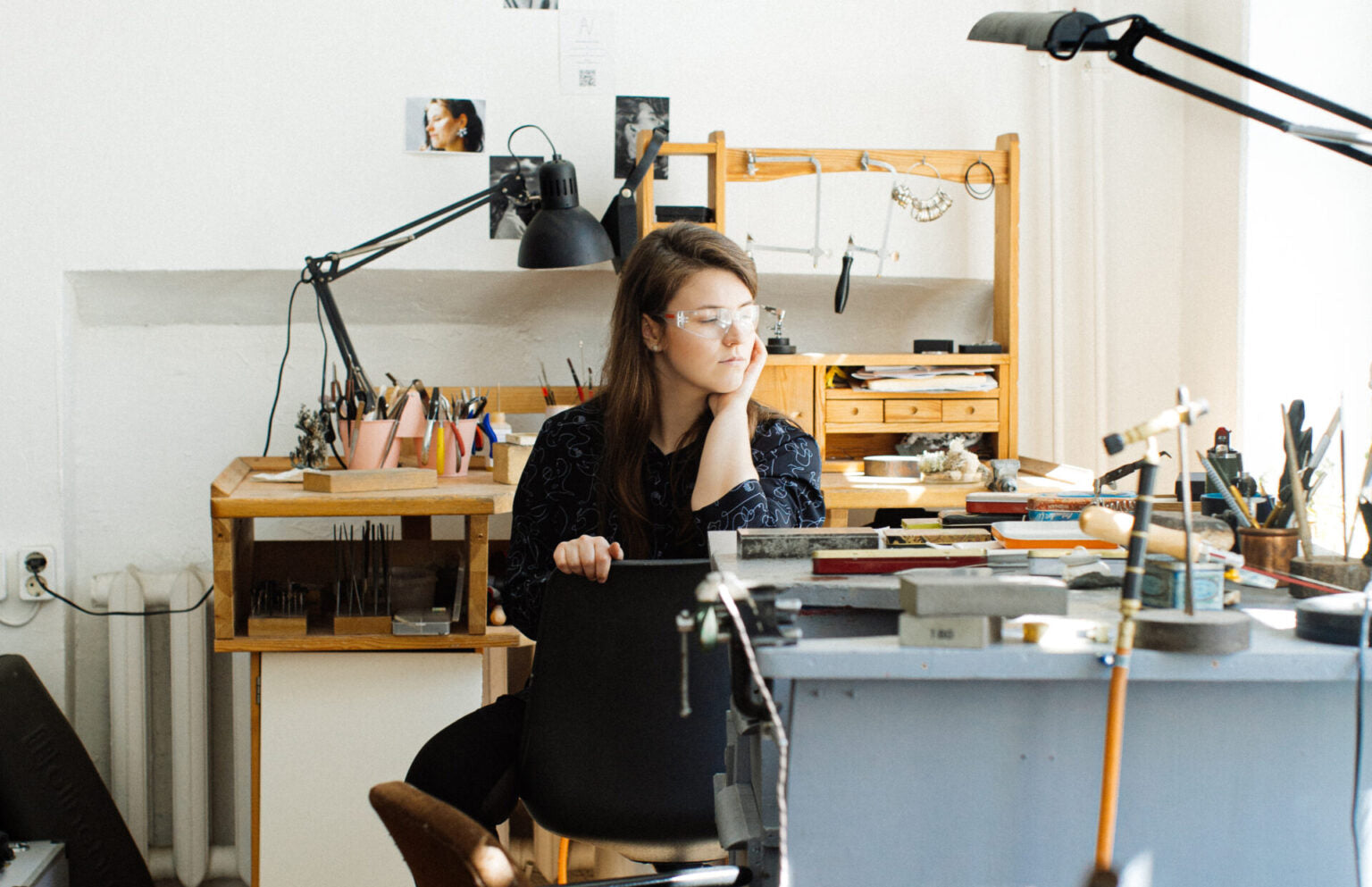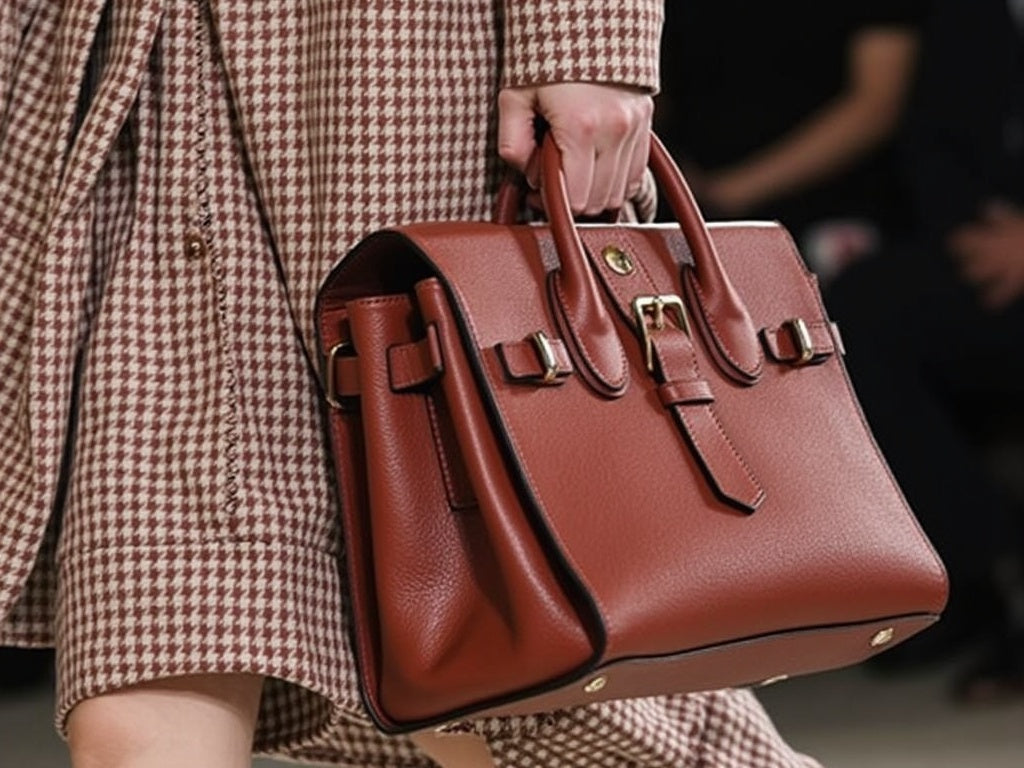Over coffee last Tuesday, a designer I work with told me she was closing her studio.
Not because her work wasn't selling. Not because customers didn't love what she made. But because after platform fees, shipping costs, and payment processing, she was barely breaking even.
She's incredibly talented. Her pieces sell out every time she releases a collection. But the math just doesn't work anymore.
This conversation has been haunting me because it's not isolated. I'm hearing versions of this story almost weekly now.
The Slow Squeeze
Something fundamental has shifted in the economics of independent making over the past few years, and we're not talking about it honestly enough.
Material costs are climbing steadily. That sustainable fabric or ethically sourced leather that was already expensive? It costs more than it did two years ago. Quality doesn't get cheaper.
Shipping has become both unpredictable and prohibitively expensive. What used to cost £5 might now cost £12, with no guarantee of reliable delivery times. International shipping? The numbers are even more brutal.
Platform fees keep rising across the board—whether it's Etsy, Amazon Handmade, or Instagram Shopping. Everyone takes their percentage. Add payment processing fees, and suddenly 20-30% of every sale disappears before the maker sees anything.
Meanwhile, customer expectations haven't adjusted to this new reality. People reasonably expect competitive pricing, free shipping, and easy returns. They're comparing independent makers to companies with massive logistics operations and economies of scale that can absorb these costs.
The ceramicist making 50 pieces a month can't negotiate the same shipping rates as a company moving 5,000 units. The fashion designer working from her studio can't get the payment processing fees that a brand with millions in revenue commands.
The systems we have were built for scale players. They favor exactly the kind of businesses we claim we're trying to move away from.
What Gets Lost
Here's what keeps me awake: if we lose these independent makers to economic pressure, we lose something irreplaceable.
We lose diversity. Independent makers create from their unique perspectives, cultural backgrounds, and personal aesthetics. They're not following trend reports generated by AI. They're following their convictions.
We lose craft. I'm talking about techniques passed down through generations, skills honed over decades, knowledge that exists in hands and hearts rather than instruction manuals. Once it's gone, it doesn't come back.
We lose courage. The willingness to make something different, something that might not test well in focus groups but comes from a genuine creative impulse. The world needs this kind of bravery.
We lose culture. Design that reflects real places, real traditions, real stories—not what an algorithm predicted would convert at checkout.
And here's the part that haunts me most: that talent doesn't come back. Once someone closes their studio and takes a corporate job to pay rent, we lose their voice permanently. They might keep creating as a hobby, but the world doesn't get the full expression of what they could have contributed.
I've watched this happen enough times now to know it's not about lack of talent or poor business sense. It's about infrastructure that wasn't designed for them.
The Infrastructure Problem
The fundamental issue isn't that independent makers lack skill or market demand. It's that the infrastructure to support them doesn't exist at their scale.
Every platform and service is optimized for volume. The more you ship, the better your rates. The more revenue you process, the lower your fees. The bigger your advertising budget, the more visibility you get.
This creates a vicious cycle: you need scale to access the tools that would help you achieve scale.
Even well-intentioned platforms often end up extracting value rather than creating it. They provide access to customers but take enough in fees that makers struggle to survive. They offer visibility but require advertising spend that small creators can't afford.
What's missing isn't just lower commission rates—though that would help. It's a fundamentally different approach to how marketplace infrastructure works.
Shared shipping solutions that give small makers access to better rates. Collective marketing power so they're not trying to build audiences entirely alone with limited budgets. Simplified backend operations so they can focus on creating rather than drowning in admin.
Discovery mechanisms that work differently than "whoever can afford the most ads wins." Ways for customers to find makers based on values, location, and aesthetics rather than just algorithmic recommendations optimized for conversion.
The Responsibility Question
If you genuinely value independent makers, handmade goods, and diverse creative voices, the question isn't just "where should I shop?"
It's "what systems need to change so these makers can survive?"
Because right now, talent and passion and beautiful work aren't enough. The economics are stacked against them in ways that feel increasingly insurmountable.
I co-founded a handbag brand between London and New York before we evolved into what Brix + Bailey is today. We lived this struggle firsthand. We know what it takes to design ethically, manufacture responsibly, and try to compete against companies that can afford to operate on razor-thin margins because of their scale.
That experience taught us that the problem isn't with the makers. It's with the infrastructure that's supposed to support them.
What Comes Next
I don't have all the answers. But I know this: we need to rethink how marketplaces work fundamentally.
Not just create another platform that takes a slightly smaller cut. But actually build infrastructure that serves independent makers rather than extracting value from them.
What would it look like if a marketplace prioritized maker sustainability over growth at all costs? If discovery worked through values and story rather than just paid advertising? If operational support was built in rather than being each maker's individual burden?
These aren't rhetorical questions. They're the ones we're grappling with every day.
Because the alternative—watching talented people close their studios because the math doesn't work—isn't acceptable. Not when we know the infrastructure could be different.
The conversation about supporting independent makers has to evolve beyond "shop small" hashtags. It needs to get into the uncomfortable economics, the infrastructure gaps, and what we're actually willing to build to support the kind of creative economy we say we want.
What I know for certain: the makers aren't the problem. The systems are.
Ian Nairn is co-founder of Brix + Bailey, where we're building marketplace infrastructure designed for independent makers rather than extracting value from them. These thoughts come from years of being makers ourselves and now working with designers across 20+ countries. Learn more at brixbailey.com


